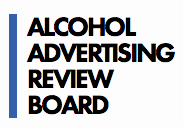Booze ad watchdog hits back at AANA: ‘If they did a better job, we wouldn’t be needed’
 The Alcohol Advertising Review Board has responded to angry comments from the advertising community that the group – which is backed by health campaigners – lacks legitimacy.
The Alcohol Advertising Review Board has responded to angry comments from the advertising community that the group – which is backed by health campaigners – lacks legitimacy.
Yesterday, the Australian Association of National Advertisers said the AARB – which was set up because it believes that alcohol advertising self-regulation is not working – was determined to “tear down the current system”, but is flawed as it is acting as “legislator, plaintiff, judge and jury” on booze ads.
The AANA labelled the AARB “a PR stunt with no ability to resolve complaints”, adding that the group was falsely generating complaints by prompting its own network of supporters to complain anonymously about alcohol ads.
As reported yesterday, of the 94 determinations made by the AARB since August last year, only eight were cleared of any wrongdoing.


alcohol is shit, literally, as it is the by-product/waste from yeast.
In reality, the five-person ABAC Management Committee has an Australian Government representative on it. It is hardly an industry ‘closed shop’.
The ABAC Adjudicaton Panels are totally independent of both industries,and always has a government-nominated public health expert on them.
Daube also don’t realise that the Advertising Standards Bureau – which Australians do know about – takes in all ad complaints, and then passes the alcohol ones onto ABAC. The public don’t need to know about ABAC in order to make a complaint.